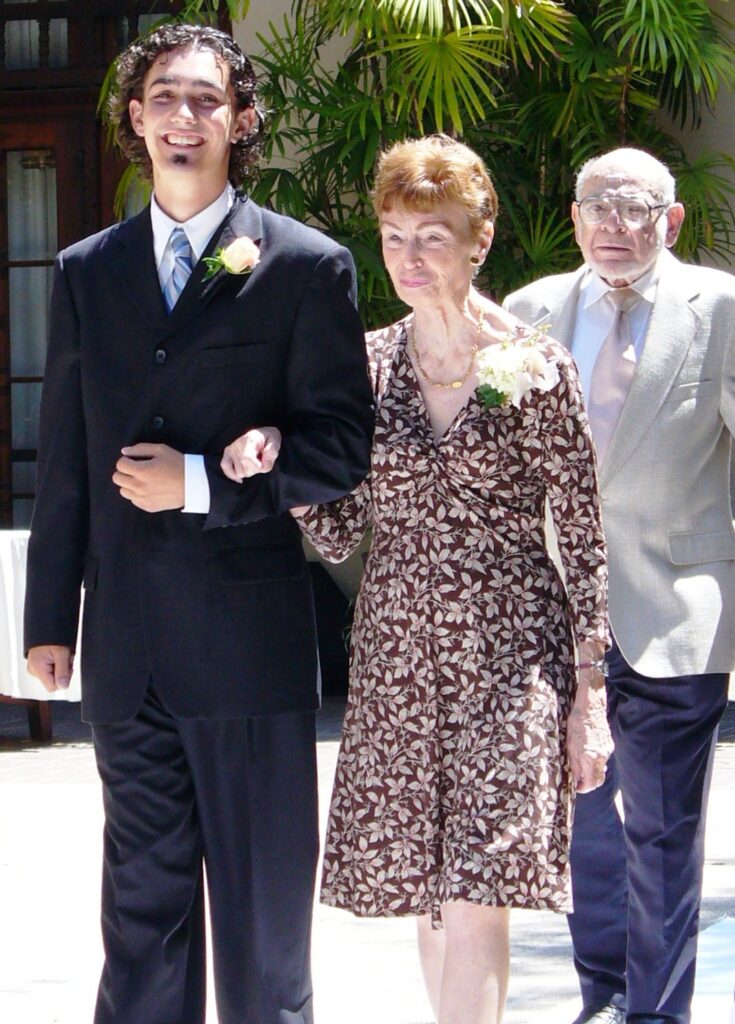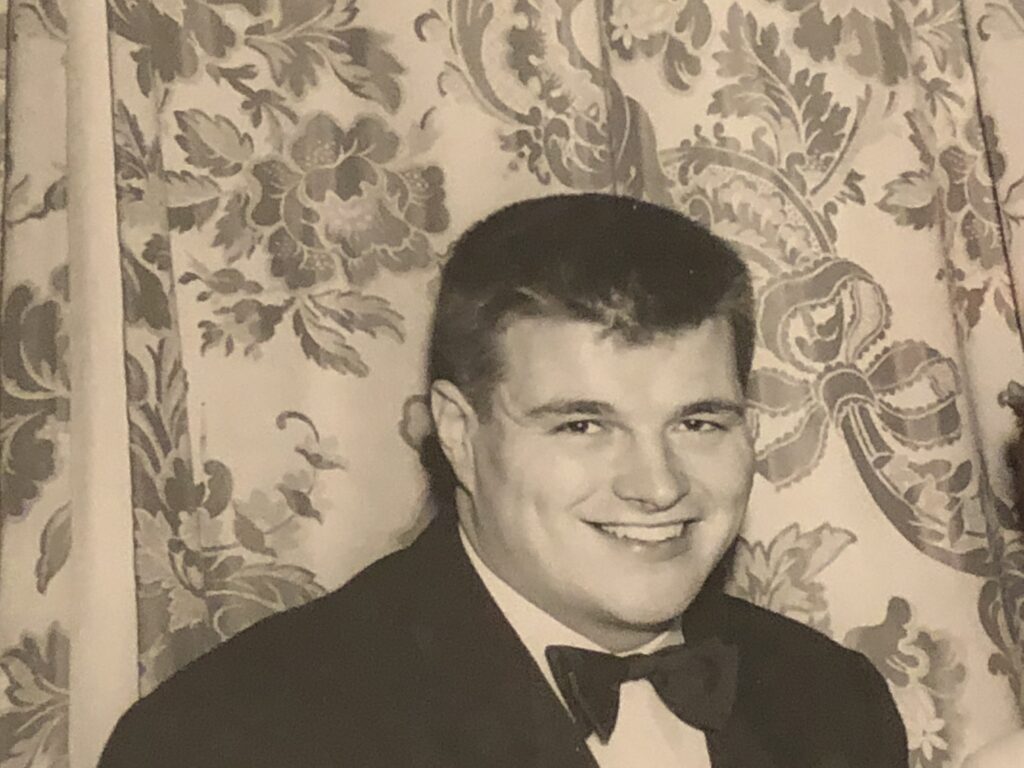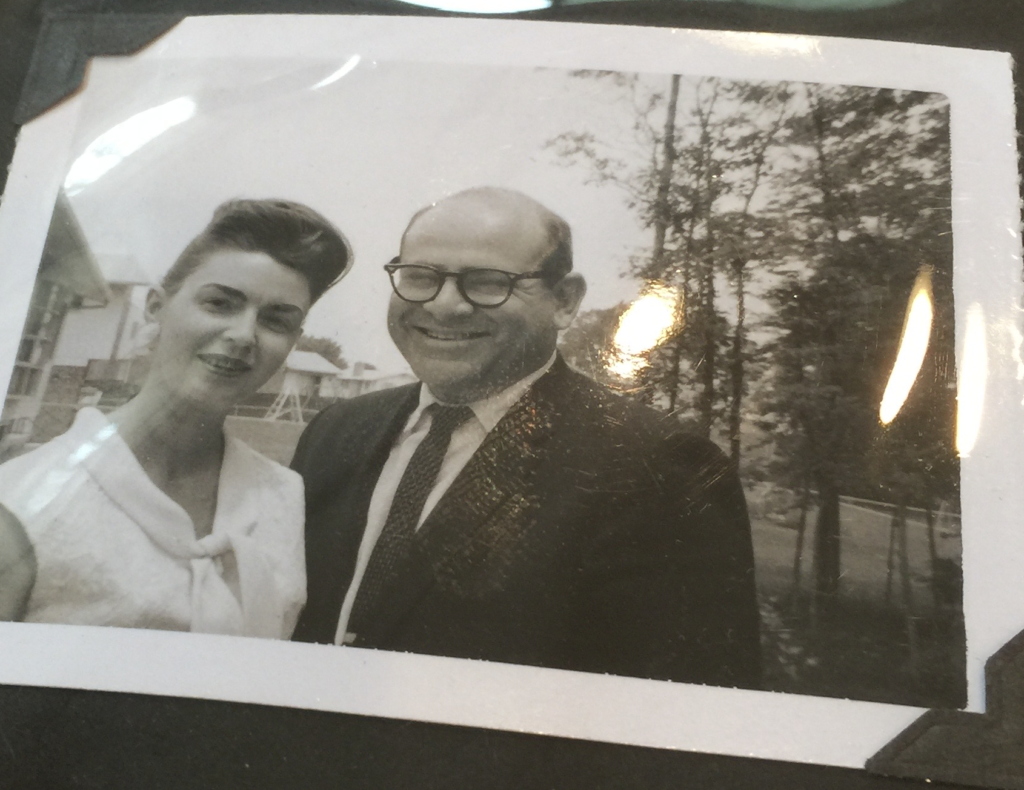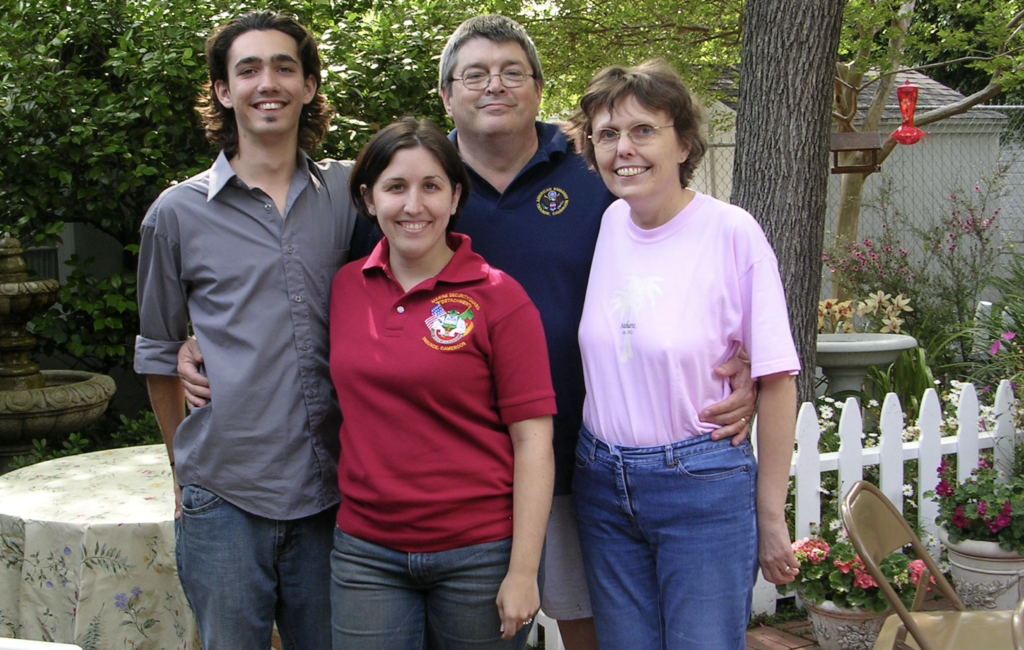It was the fall of 2009, the evening before my son Virgile was getting married.
We were sitting in a Chinese restaurant in La Crescenta, California, and Virgile was standing to toast his mother and me. He thanked us for everything we had done and called us the “best parents in the world.”
I don’t think either of us really believed that, but it was an understandable exaggeration from a happy 24-year-old who had a good relationship with his parents. I turned to my mother on my left and told her how happy that made me and I said nothing I had accomplished in my life had made me prouder than the help I had given to Virgile and his older sister Pauline to become such wonderful adults.
My mother surprised me — no, she stunned me — with her response.
“But you don’t think we were good parents to you,” she said.
My shocked response wasn’t that great. “I’ve never said that.”
“But you think it, don’t you?”
Another moment that yielded a bad response. I just shook my head and didn’t say a word.
The only answer that would have been accurate would have been an equivocal one.
Well, yes and no.

It has been more than 15 years since my dad died and nearly three since my mother passed on. Of course there was a third one and it has been more than 70 years since I saw or heard from him.
You see, I had three parents, but only two of them contributed anything more than genetic material. My actual father deserted us before my third birthday, and what little I know of him tells me most of my worst qualities and one or two talents came from him.

My mother remarried when I was 6 and from 1956 to 2008, she and my dad were my parents,
Were they good parents?
Well, yes and no. They were good in that they fed, clothed and sheltered me. They were good in that on the few occasions in my life that I got into real trouble, they dealt with it and got me out.
But?
But in my day-to-day living and growing up, they were exactly the parents I didn’t need or want. When I was on the far side of 50, I was seeing a therapist. After the first few sessions when we went through background stuff, she said something that really surprised me.
“I’m amazed by how much anger you have bottled up inside.”
And I was amazed by how much I hadn’t realized it.

Except for handwriting, I never got a grade lower than an A through elementary school. From grades 7-12, I never got an A for the year in any academic subject.
What changed? I wish I knew, but I know part of it was that despite what were essentially perfect grades, my parents were pushing me and pushing me to learn more. I spent an hour or two most evenings being handed pictures of famous people, current events and works of art and being required to look them up and then write a paragraph or so about them.
I was probably the only kid in my school who knew who Evelyn Nesbitt, Stanford White and Harry K. Thaw were.
Look it up if you care. They were all part of one of the great scandals of 1906. Joan Collins starred in a 1955 movie about it.
I skipped second grade, which was enough of a problem, but they also essentially infantilized me in other ways. They told me I was not allowed to fight, even if I was attacked. There were two exceptions — if someone threw rocks at me or if someone attacked my younger siblings.
I was told it took a bigger man to walk away from a fight, which doesn’t help much when you’re 9.
They told me all they wanted was for me to get good grades, that everything would stem from that. I had never heard the term “passive aggressive,” but by the time I was in my teens, that’s exactly what I was.
It would be a mistake to whine too much more, although so much of the way I was parented affected the parent I was to my children. The one thing that bothered me tremendously was that if I needed to be picked up after an activity at school (taking the SATs, school dances, etc.), I was nearly always the very last one picked up.
When I took the SAT for the second time, I was finished by noon on a Saturday. They picked me up at 5:30 p.m. They had been running Saturday errands, and when I complained about having to wait so long, their response was that “the world doesn’t revolve around you.”
Of course, that wasn’t what I heard. I heard “you are our absolutely lowest priority.”
After that, if I had a Saturday activity, I walked the 4 1/2 miles home.
When Nicole and I married in 1992, I acquired two children. One thing I told both of them right at the beginning was that if I had to pick them up somewhere, I would always be waiting for them when they came out. They would never have to stand around waiting for me wondering when I would be there.
I kept that promise.

As for who the world does or doesn’t revolve around, one thing I realized was that with few exceptions, children learn very quickly that they’re not very important. I wanted my children to feel like my world did revolve around them.
As I said earlier, when push truly came to shove, my parents were there for me in ways I have never had to be there for my children.
But day to day? Making sure they felt loved and they knew I would be there even for the little things? Letting them know that I thought they were wonderful?
Was I better at that?
Before I give my answer, I should qualify it by saying it was certainly much easier to be Pauline and Virgile’s dad than to be mine.
But was I better?
Heck yes.
